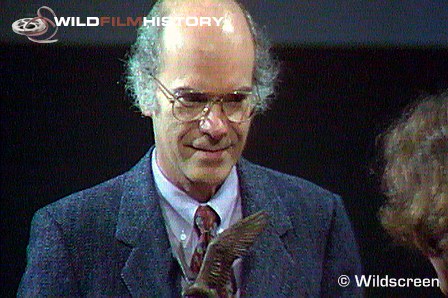James (Jim) Murray

James Murray began his professional broadcasting career in 1957 as a radio producer for the Canadian Broadcasting Corporation (CBC). With what was to become a 35 year affiliation, James moved to television and began producing the multi-award winning The Nature of Things in 1961. The half hour topical science program was fronted by several guest hosts, including naturalist John Livingston. James became executive producer in 1969.
From 1972 – 1974, James was temporarily seconded to produce and direct The National dream, an 8-part series about the political and engineering struggle to build the Canadian Pacific Railway. It was one of CBC’s largest and most successful productions, attracting a record breaking 3 million viewers in Canada, and was well received internationally.
After this success, James created and was executive producer for Science Magazine, a half hour popular science program fronted by David Suzuki. It immediately attracted a substantial and youthful audience, who were outraged when the show was unwittingly cancelled in its first year. The network quickly reinstated the show and moved it to a prime time slot, where it ran until 1979, when it was amalgamated into a one hour program, The Nature of Things with David Suzuki.
The show’s contemporary exploration into science, technology, wildlife and the environment has earned it the Gemini Award for Best Documentary Series on Canadian television four times, under James’s leadership. It has been regularly broadcast since 1960 and shown in over 50 countries worldwide. Although the show reflects a wide range of interests, James was particularly passionate about studying and protecting birds, and avian science and conservation were reoccurring themes. For this dedication, he was awarded the 1996 Doris Speirs Award for Outstanding Contributions to Ornithology.
Inspired by the writings of his regular collaborator John Livingston, James was executive producer for the popular and critically acclaimed A Planet For The Taking in 1985. Described as ‘expository television at its finest’, the 8-part series delved into our relationship with nature and was awarded the United Nations Environment Program Medal and the World Environment Festival Award.
James has been honoured with numerous awards for his science, natural history and conservation achievements worldwide including the North American Association for Environmental Education Award for ‘Outstanding Service to Environmental Education’ in 1988, and in 1990, he received the Outstanding Achievement Award at the Wildscreen Film Festival in Great Britain.
James died on 3rd June 2012, his films are a great tribute to him.
